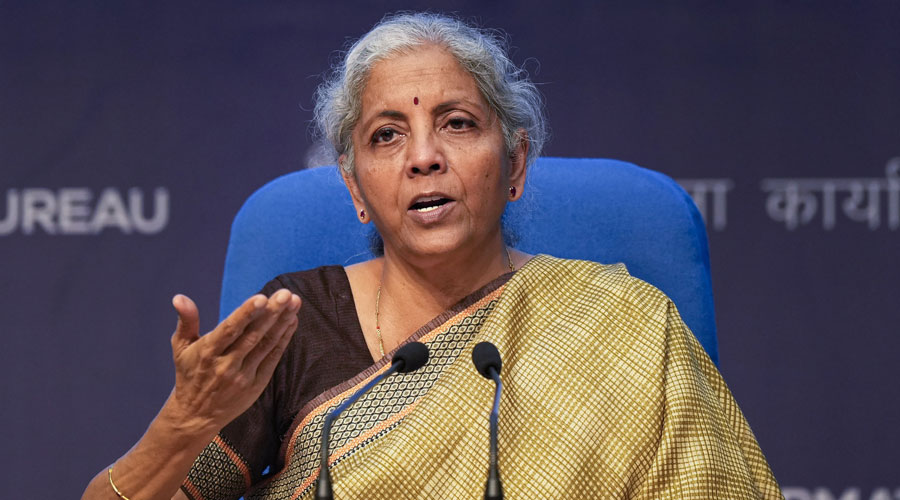India wants the World Trade Organization to be more progressive and listening to other countries, Union Finance Minister Nirmala Sitharaman said Monday asserting that the WTO needs to give more space to the countries which have something different to say and not just hear.
"I would like the WTO to be a lot more progressive, a lot more listening to all countries, to be fair to all members," Sitharaman said during a fire-side chat at the Peterson Institute for International Economics, a top American think-tank here.
"I, fortunately, unfortunately spent some time with the WTO in my capacity as a commerce minister of India between 2014 and 2017. It has to give more space to hear voices of countries which have something different to say and not just hear, but also somewhat heed because today's message for the WTO should be to have greater openness," Sitharaman asserted.
"In fact, I'm not quoting, in the context of WTO, but it might be useful to recall the words of US Commerce Secretary (sic), Katherine Tai. She had recently spoken and I was very, very impressed, if I can use that word, about what exactly is the traditional trading approach. What exactly is liberalizing the market? What would it actually mean in terms of tariff reduction?" she said.
"It is true now, countries do look at it. It is a time when countries are looking at what extent to which you would want to have market liberalization. It has had cost repercussions for the US economy, and that's exactly what the US Secretary Commerce has said. And if that's something which the United States Commerce Secretary feels, I felt the same in 2014 and 2015. Probably my articulation was never getting a space in global media. But many of the global south countries do have the same feeling," she said.
"What exactly is this? How far is liberalization? To what extent tariff reduction? We in India for all the less developed countries, the global South, if you would ask them would have a similar opinion as the US Commerce Secretary. But in India, we've already extended to all the least developed countries, quota-free, tariff-free trading policy," she said.
"So any country, let's say from Africa or anywhere else, the Pacific Islands or countries which are aspirational, low income countries can export to India without any of these restrictions. So, where it is possible, we are opening up, but at the same time, we need to look at how India's become remanufactured almost because if you go through the MFN route, you end up opening up for the efficient ones in the market, and that may not be your country. Manufacturing abilities of communities have all gone for a toss, not just in India, but I suppose in many countries as well," she said.
The finance minister wonders how a country gets its manufacturing back if it only have to constantly liberate its market. "Discussion worthy points." "India's attempt to talk to the WTO, talk in WTO have all faced with just no moment. The other classic example, which is in the minds of many of the emerging market countries is the electronics transmission related wall. Isn't that since 1998, all of us are sitting and watching that you can't do anything on the customs route for so much that is happening in the electronics business. It's hitting the kind countries very differently," she said.
"Since 1998, there has never been a need for reviewing it. All that I'm asking is that. And why wouldn't every ministerial conference, which happens, ever, ever, ever take up this for discussion. It doesn't take. The moratorium continues. So, it shouldn't be difficult for you to appreciate. So when countries will have to speak at the WTO, it has to be on very many issues on which decision has not happened for over decades," Sitharaman said.
PTI
Except for the headline, this story has not been edited by The Telegraph Online staff and has been published from a syndicated feed.










